Monsoon car driving tips
Here are some pointers to follow when you take your car out on the road during the rains.
Published On Jun 06, 2021 10:14:00 AM
82,932 Views
Follow us onAside from the daily challenges of driving, monsoons bring with it the additional danger of reduced visibility, heavy and sometimes unpredicted rainfall and chances of roads being flooded with water in many places. With the monsoon season now almost upon us, we take a look at some safe practices to follow when out on the road.
Additionally while lockdown measures in some states might not allow you to properly adhere to some of the guidelines such as replacing tyres or wiper blades it is best to have these corrected at the earliest convenience.
1. Ensure your car has sufficient tyre treads
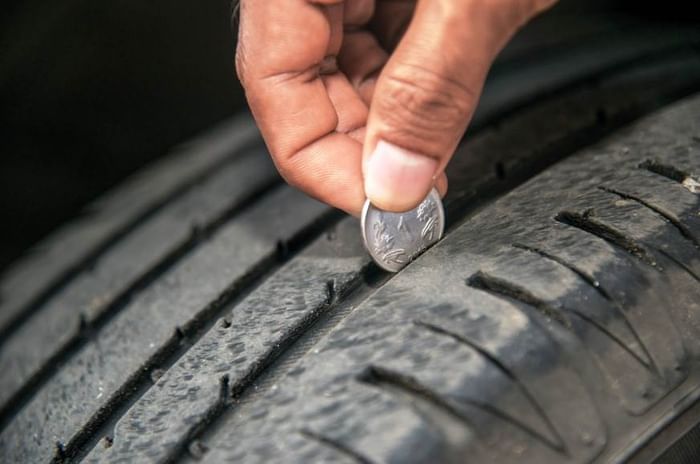
Tyre treads play an important part in improving grip particularly in the wet. The treads act as channels to disperse water and allow optimal contact between rubber and road. Worn tyres or bald tyres – the latter have little to no groves – will simply not be able to displace water and will surf or slide. Ensure tread depth is above the minimum level – it should be at least 2mm deep. Most tyres will have tread wear indicators – small cross ribs set in the main longitudinal grooves, about 1.5 to 2mm in height. Once the tyre surface is level with these ribs, it's time to get a new set. Worn tyres are also more prone to punctures and in some situations could even burst, so ensure to change tyres before or when the tread depth is at the minimum.
2. Ensure properly functioning brakes

Having properly working brakes is important in all driving conditions. In the monsoon it becomes particularly important as stopping distance of vehicles tend to increase in the wet so having your brakes in tip-top shape is a big plus. Also when driving during heavy rains or just after driving through large puddles, make sure you dry the brakes by lightly tapping them intermittently. Now a days, new car come with ABS as standards which make braking in wet conditions much easier, and keep you safer in the rains.
3. Wiper blades
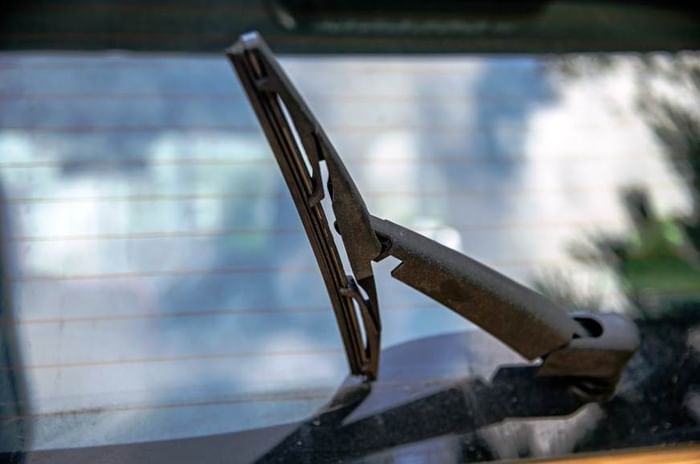
What you want when driving in the monsoons is a neat, streak-free windshield when you turn on your wipers. Streaks can hamper your daytime vision and also cause distracting headlight refractions. So, make sure your wiper blades are wiping clean. Also, top-up on the wiper washer fluid to clean mud splashes and sprays from the cars passing by.
4. Using the lights when needed

During reduced visibility conditions it is best to drive with your headlights and fog lights – if the car comes with them – on as it makes you more visible to the people driving around you. So it’s best to inspect all exterior lights before the monsoons set in. While some people do have the idea to use their hazard lights in these condition it is something that is best avoided. The hazard lights or blinkers are to only be used when the vehicle is stationary in a dangerous or vulnerable spot. By using these lights in the rains, a slow-moving car could be mistaken for one that’s stopped.
5. Keep distance and speed in check
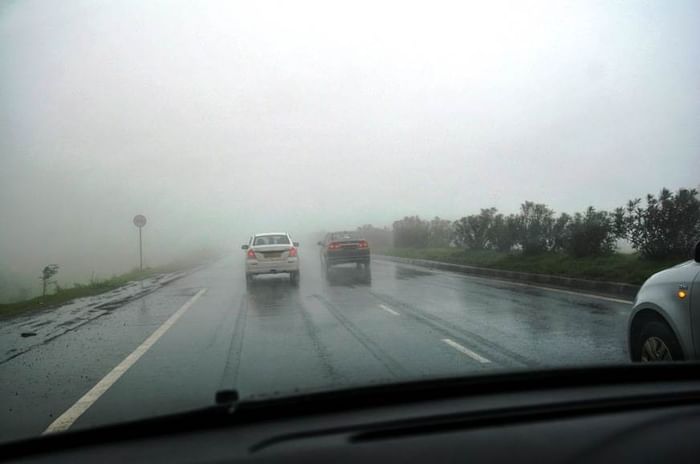
As mentioned above, braking distances are increased on wet surfaces so it’s best to keep a larger distance from the vehicle in front of you and keep your speed in check especially when raining. This not only gives you adequate room to brake but also a little more time to react which can be a life saver. It will also provide you with a better view of the road ahead, handy with the increased potholes and debris.
6. Escape plan
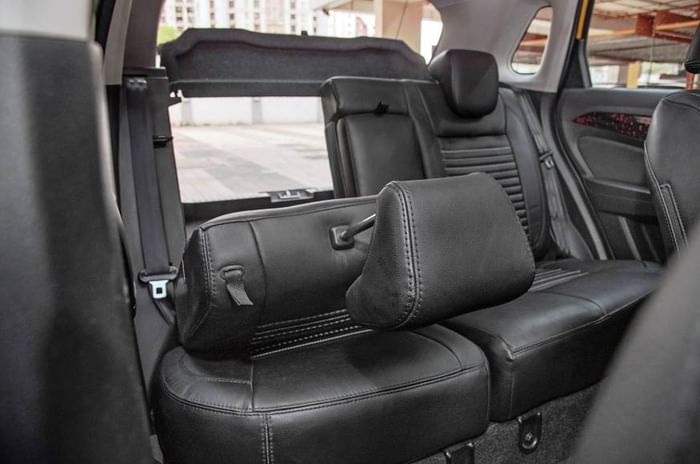
In case of a worst-case-scenario, it pays to know of ways to escape your car. For instance, many cars have an inner boot release mechanism that you can access through the folding rear seats, in the event the car's doors get jammed. Another option is to break open a window, using a car hammer or if nothing else the metal sliders of the headrest or your feet. It also helps to have other handy bits like a seatbelt cutter, a torch and a certified fire extinguisher.
7. Navigating flooded streets
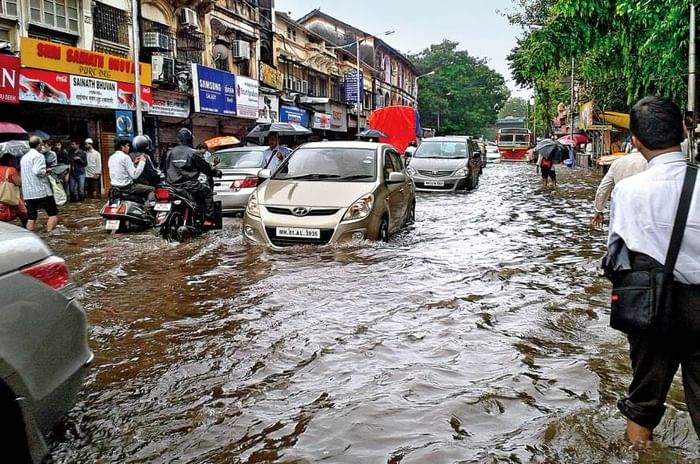
Given that our monsoons rains can range from light to very heavy and can be very unpredictable there may be times that you find yourself requiring to travel through a waterlogged street. Before you start, it’s best to assess the water depth. You can do this by eyeing other cars wading through the same. If need be, wait for a bit and observe some more.
When you do start moving stick to a lower gear, preferably in first gear, and keep the engine rpms up to prevent water from entering the exhaust, which can cause engine damage. If you suspect water has entered the exhaust, do not try to start the car.
Once through, don’t forget to dry the brakes by gently dabbing the pedal while moving.
8. Always best to top-up
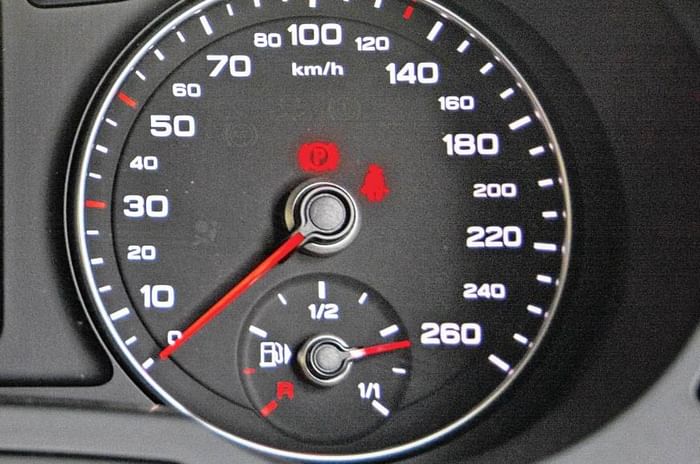
Often times than not, you have a greater chance of getting stuck in a traffic jam during the monsoon season. Be prepared for long waits in your car, and so make sure you’re tanked up before heading out. The last thing you need is finding that you're stranded because you're out of fuel. Also, keeping some water and snacks handy, lots of music, spare phone charger or power banks, a change of clothes, an umbrella and maybe even a towel is not a bad idea.
Also see:
Copyright (c) Autocar India. All rights reserved.




Comments
Member Login
Personal Details
No comments yet. Be the first to comment.